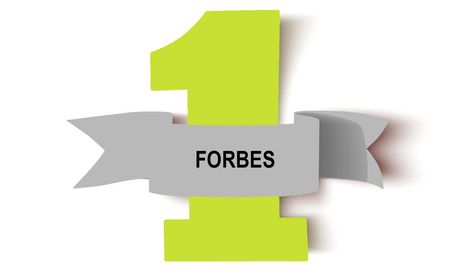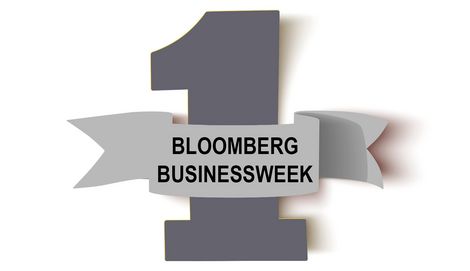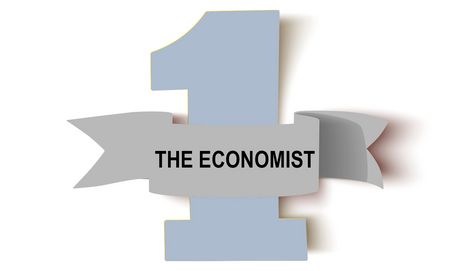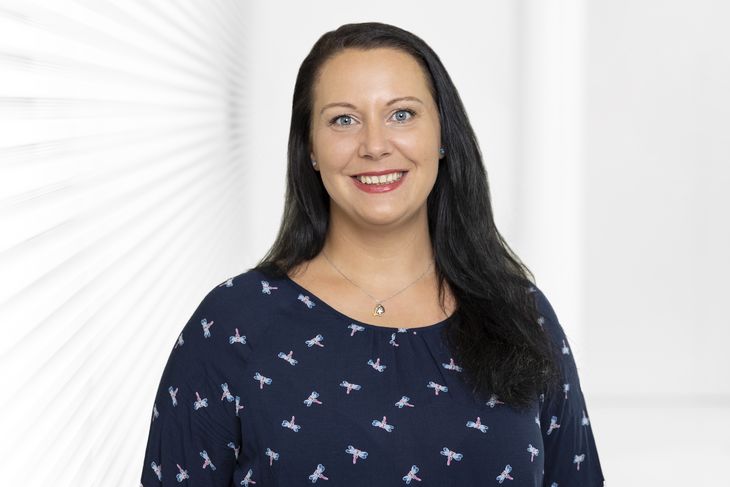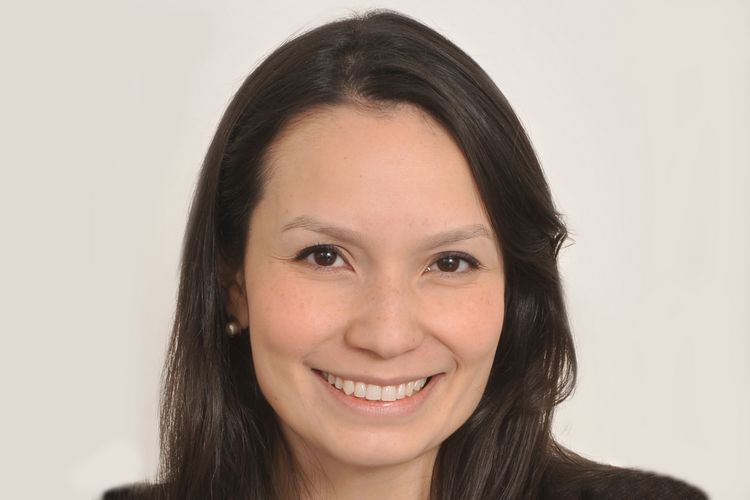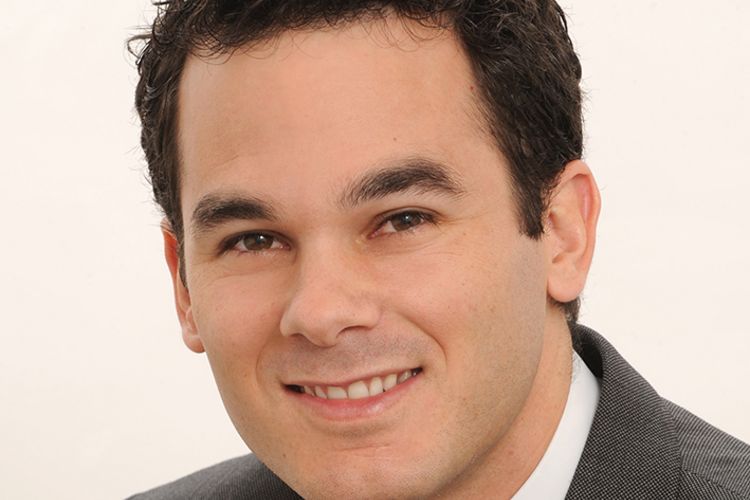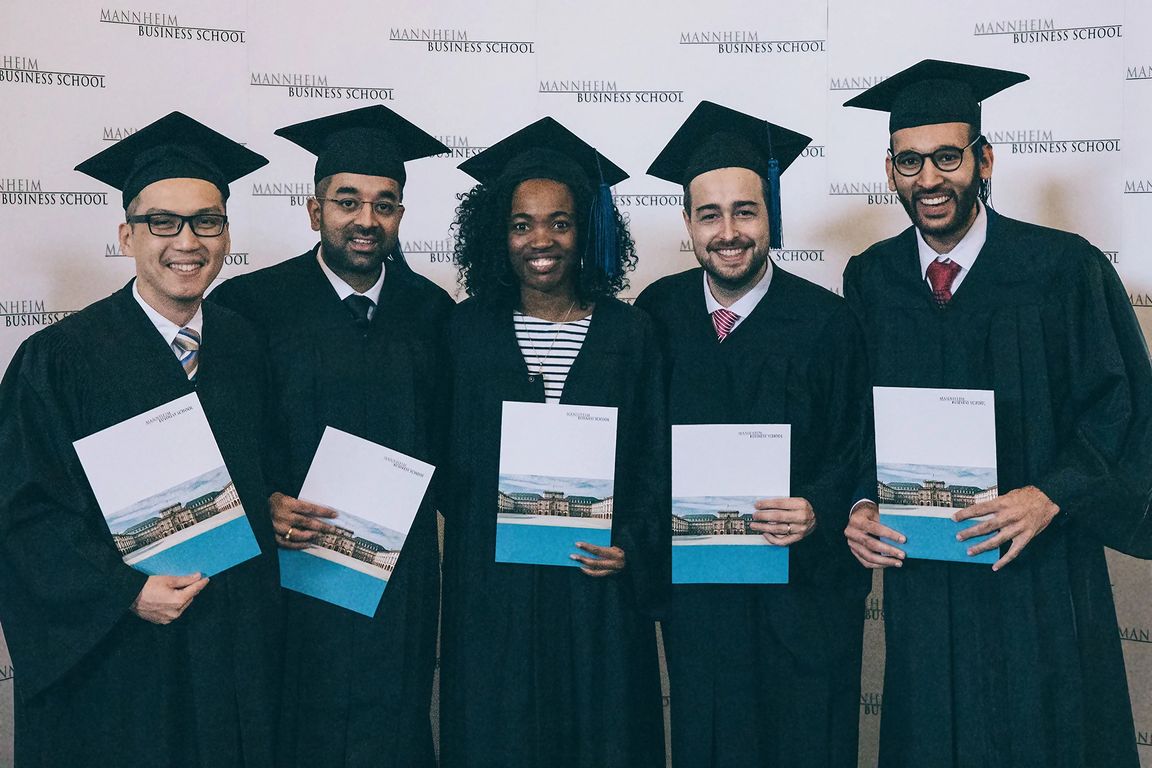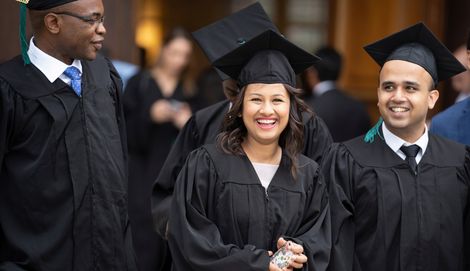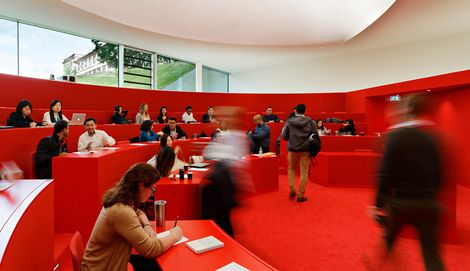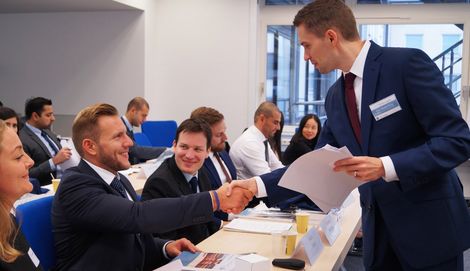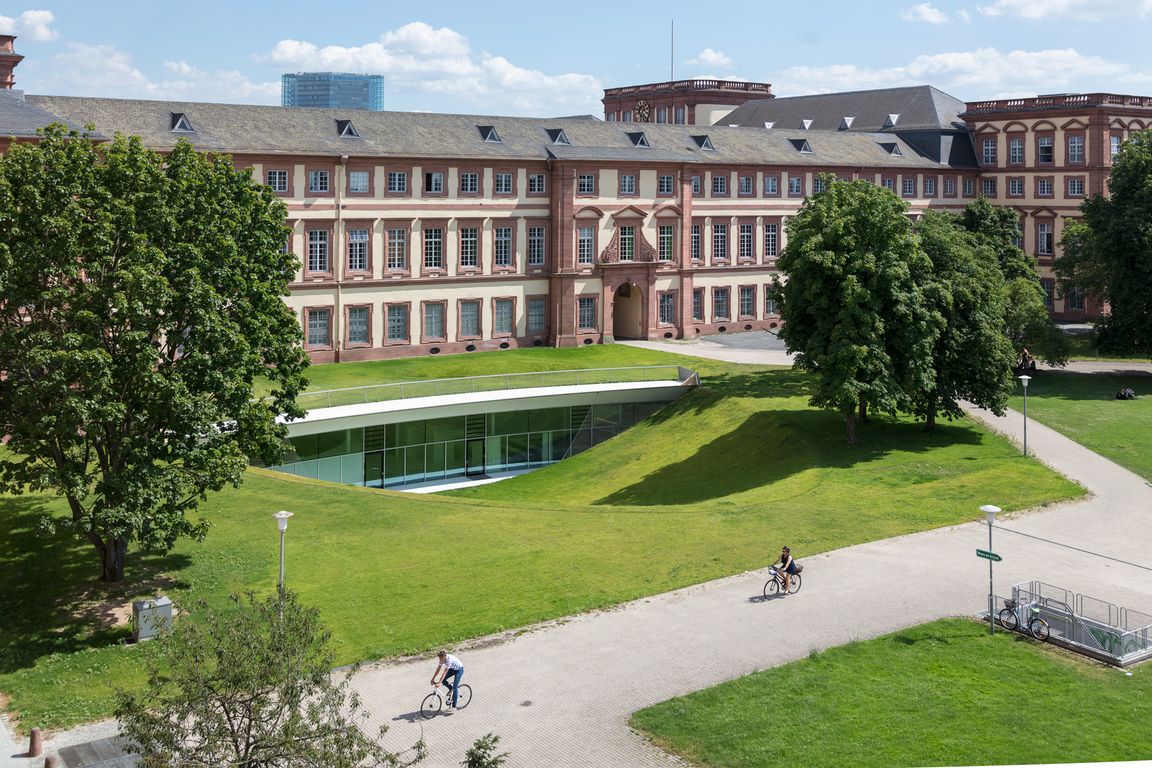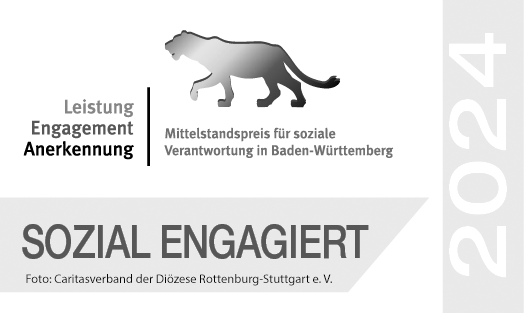The Survival Kit
The decision was made and before I came to Mannheim, all important organizational issues were taken care of, requiring just a little cooperation from my side. The MBS Program Management Team stands for quality and responsiveness. I have rarely experienced dealing with such an effective, diligent and friendly team. Financial aid: MBS gave me the option to get a loan from a financial institution in cooperation with the school. Of course there was some paperwork to do, but I was continuously supported by MBS. The conditions were fair. Residence Permit: As a European I didn't require a residence permit but this was something which MBS helped my colleagues with. It is always a hassle to go through bureaucracy, just like anywhere else. Apartment: In advance, I was provided with the guidelines for student apartments including pictures, prices and services. Within only one week, I had the contract for my apartment. For 390€ per month, everything was included: water, heat, electricity, high speed internet and cable TV access. Of course, this was not a 5 star hotel but to me it was Mannhamas! It was really warm in the winter when it was snowing outside and - thanks to good isolation- pretty chilly during summertime. The apartment was full of light, with a large window and a door window leading to a shared balcony. The Rhine river was located only a couple of meters away. The internet connection was totally reliable through the entire year. Videoconferences via skype or watching the Champions League via streaming was not an issue - perfect quality. Besides, I had a little kitchen with simply everything, a private bathroom, and cable TV. MBS was only a 15-minute walk away. Food: Food in Germany, especially in Mannheim, is very cheap if you come from any other Western European country or North America. During the week, I typically had lunch at the University dining hall (Mensa) for 2,50€ (soup, salad and main dish), but sometimes I got a bit more fancy and ordered a menu at a restaurant (German, Indian, Japanese, Thai, Italian...) for only a couple of Euros more! It only took me a couple of minutes in order to walk to all these lovely restaurants. There were a lot of supermarkets, too, which were quite cheap and offered good quality!
First Days, First Week
I arrived at Mannheim a couple of days before the program started. I had spoken with several students (the MBS Program Management provided me with contact details of current MBA students and everyone was immediately available for me with answers about the program, living in Mannheim, etc.) and I knew I would be fine. During those days,I decided to go for a run by the Rhine river and walked through a lovely park. It was just beautiful to go running, biking, and rollerblade skating. Soon I was sitting in the MBS Lecture Hall attending classes. The first week was an introductory one: We gained access to iConn (interface platform for students, program management, and professors) and access to wireless internet across the entire University of Mannheim. We got our student ID card in order to be able to access MBS buildings and libraries, we took professional pictures for the profile book, had a kick-off dinner with the entire class, worked on business case studies, attended workshops, and were divided into Multi Competence Teams. There were some fun ice-breakers and a cross-cultural training with interesting personalities from all over the wolrd: China, India, Russia, USA, Germany, Canada, Brazil, Argentina, Belgium, Great Britain, Turkey, Pakistan, Spain - wow!
Second Week, Buckle Up
The intensity of the program varied each week. There were really tough days, on which I had to catch up with lectures and case studies during the week as well as long nights of little sleep, during which I studied, prepared a case study or a presentation. On average, I had classes from 9.00 am to 6.00 pm (lectures) plus several hours of group work almost every day. But in the end, this was a worthwhile investment. There were also fun times: Lots of jokes, laughing, coffee breaks, or having pizza for dinner with my team mates. Classes officially started at the beginning of the second week with a lecture about Decision Analysis.
First Semester
The first semester seemed to be less intense than the rest. However, we had to get used to the system, the new people and dynamics first of all. Furthermore, we had to dedicate much time in order to really dig into fundamental subjects such as Financial Accounting, Marketing, Managerial Accounting, Corporate Finance, or Macroeconomics. I enjoyed these subjects very much with very insightful and down-to-earth lectures that gave me a solid ground for the upcoming ones. Company presentations and business forums already started in the first semester. Leading international companies visited us during the whole year, it was a great chance to start networking. Other highlights were: A big party in November after our first exams, Glühwein to warm up in December, delicious chocolate crêpes to get some sugar after the demanding semester, dinner together with all colleagues to say goodbye to 2010 and the end of our first semester.
Second Semester
The good thing about the second semester was that the intensity did not vary anymore, it was intense the whole time! Lectures from 9.00 am to 6.00 pm every single day plus daily group work (case studies one after another including presentations every week until the end of June) as the subjects are running weekly at full capacity. However, in this semester I had Strategy, Information Systems, Organizational Behavior & Change Management, Ethics & CSR, Innovation Management, Company Valuation, Consumer Behavior - subjects that were easier for me to grasp. Even though each week was an intense one, we had a couple of weeks off since I had not taken certain elective subjects. This gave me the opportunity to rest a bit, finish late assignments and prepare for te upcoming weeks. The best thing was the number of guest speakers (business professionals - executives) that professors invited for lectures. They gave excellent speeches and presentations. I will never forget one evening during Consumer Behavior in March, it was still cold outside, when I was listening to an executive from Saatchi & Saatchi speaking about their Lovemarks Model, of how products, services or organizations that build relationships with their consumers cannot be explained rationally, but create loyalty beyond reason. The whole class was completely in silence and absorbed. We had many lectures like this one: a turn-around case in the toy industry in the midst of the financial crisis (Strategy); the dilemma of expatriates when sent abroad for several years (Change Management); how the executive board of a multinational made decisions during the crisis literally throwing business plans to the garbage to focus on their liquidity (cash position, or blood as it is said); the ethical dilemmas that a Top Manager faces when having tremendous power (Ethics & CSR) - oh how I loved doing the MBA! Having decided on what to do as our Social Project, it was already time to start working seriously on this issue. We were going to help an NGO by providing them with plans to be more efficient in reaching out people and help them execute on it.
Third Semester
This semester was still very intense. On the one hand, we had subjects such as HR Management, Corporate Mergers & Restructuring, Global Information Management, International Marketing, Production Operations, Strategy Global Corporations, and Taxation - with exams, presentations, and case studies. Again, all of them were incredibly interesting topics with open discussions in class, in addition with guest speakers almost every week during lectures. On the other hand, it was time for all MCTs to do the Company Project as well as the Social Project. Attending presentations and preparing well for the Company Project was important as we knew we would be intensively working with the companies for two months. By this time, if not even earlier, many of us were working on our CVs and preparing for job interviews. We were attending MBA fairs, job fairs, company presentations, and optional company visits to Porsche, BASF, or Amazon. In this semester I finally started seeing the finish line. Time was moving fast and I knew that this great year would be over soon. Until then, I celebrated it at the Biergarten, enjoying the good weather and drinking some beer with my class mates!
Company Project & Master Thesis
I thought I would be able to slow down and work on my applications for the time after my MBA - but no! After attending school for 10 to 12 hours a day and then switching to the Company Project and the Master Thesis, my MCT and I thought we would have all the time in the world. Yes indeed, we had all the time in the world working on the project and the thesis. It was tough and demanding. The Business Master Project turned out to be a consulting project. For two months, we worked hand in hand with a leading company (market leaders such as: Deutsche Bank, A.T. Kerney, TRUMPF, SAP, BASF, Heraeus, BOSCH, BMW, etc.) developing a Lead Indicator Management System to anticipate market movements and therefore enable them to steer the company more effectively. The CEO came to the intermediate presentation (8,000 employees worldwide) and the Board of Management attended the final presentation. Management in the UK took a flight to Germany for the presentation that day, so yeah, the project was taken very seriously.
The Campus
Everything is within reach at Mannheim Business School. We attended classes in two different MBS buildings: The MBS Lecture Hall at Mannheim Palace (Schloss Mannheim) and one at Dalbergplatz (Education Center Dalbergplatz), right at the heart of Mannheim downtown. With our ID cards we had access to University libraries and multiple quiet places to study, but we could also study at MBS facilities.
Time for Everything
Whether you want to play soccer, go swimming, go to the gym (free for students), play tennis or basketball, play cricket or go skiing - there is time for everything if you get yourself organized. We did most of the sport and leisure activities as a group. We managed to play indoor soccer almost every week and participated in a fun soccer tournament in Leipzig against other business schools and companies across Europe. Some colleagues trained several months, starting in spring time, for a rowing contest in Cologne that took place in July - they loaded a whole bus of Mannheimers to cheer them on that day. Thirty of us, including the program management, participated in the Mannheim marathon, which takes place every year. Going out for a beer with your best buddies fortunately did not require any planning nor training.
How difficult is to find a job in Germany without speaking German?
I distinguish between finding a job and already having a job/working. Finding a job in Germany with absolutely no German skills is, of course, difficult. I would say that it is as difficult as it is in any other country where you do not speak the language. The good news is that finding a job in Germany with intermediate German skills is relatively easy if you meet the background and experience requirements (and of course you are genuinely motivated to continue improving). Once a German company offers you a job, chances are good that you will stay in that company - if you want to. Working in Germany, however, is easier compared to other countries, because German companies are very open, very international and they all pretty much speak English. Still, speaking German is a must. I took advantage of the German courses offered for free by MBS and attended two different levels for 9 months. This required some energy, but in the end, you do not only have an MBA degree, but also German skills. Take it seriously!
Why do you do an MBA?
"To learn" you may say. Good! To learn, not to be taught. Although the lecture standards are pretty high, the diversity at MBS in terms of nationalities, backgrounds and experience is huge and needs to be balanced. My advice: You are in the driver seat and should be responsible for your learning experience. The professors will teach you something, but the learning process itself takes place within you. Go the extra mile, deepen your knowledge, ask tons of questions, research for pure pleasure even if something is not part of the exam but simply interests you personally. Start sending out CVs soon enough (March-April). I have been there and it takes time; an MBA is not the Master of the Universe. Be disciplined when it comes to learning German, this will be the the factor of differentiation. Discipline weighs ounces, regrets weigh tons. Be aware that Germans are very respectful and will switch to English for you at any time, but this does not help you. Broaden your horizon!









